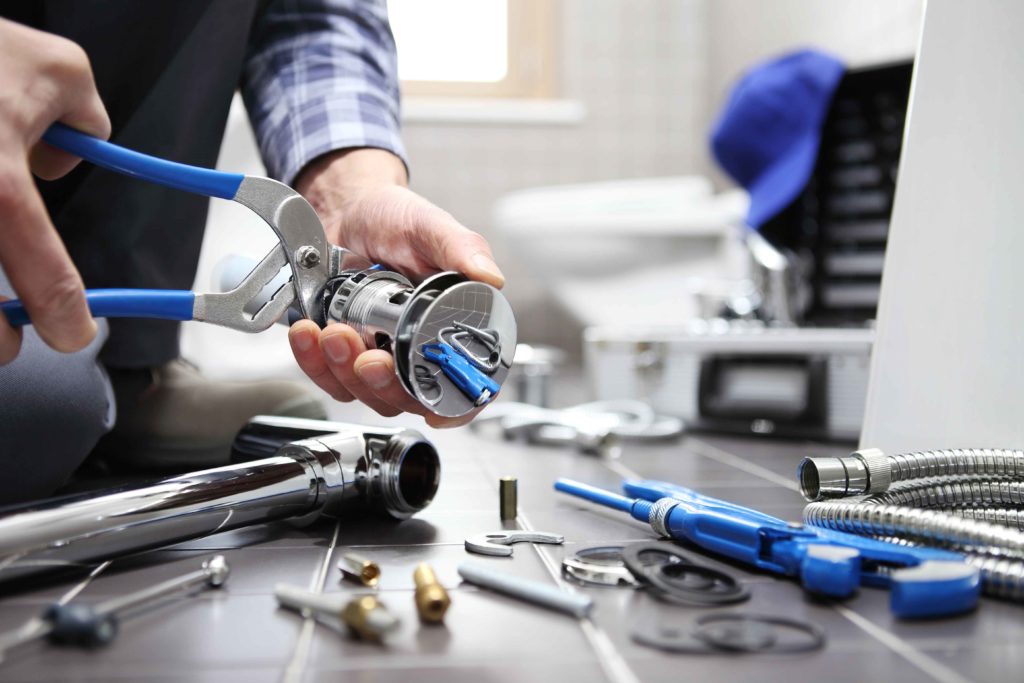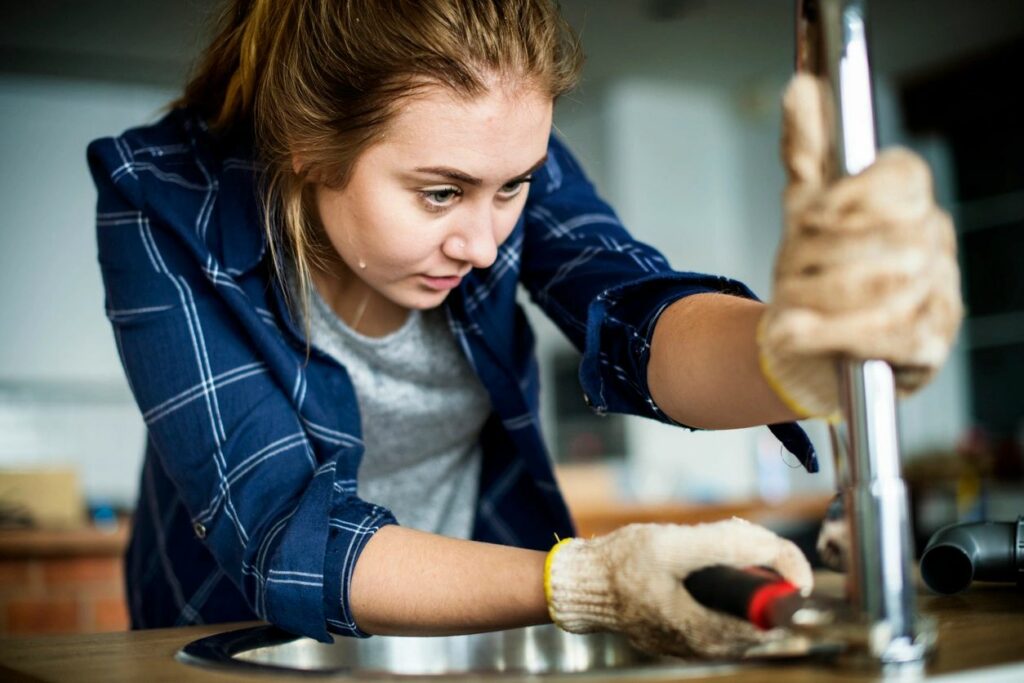We've noticed this post on Why Is It Important To Fix Your Leaking Tap/Faucet? below on the web and reckoned it made good sense to write about it with you on this site.

Trickling faucets may seem like a minor aggravation, but their influence exceeds just the inconvenience of the sound. From drainage to sustaining unneeded financial costs and health and wellness threats, overlooking a dripping faucet can lead to different repercussions. In this article, we'll look into why it's crucial to address this common family issue without delay and efficiently.
Wastefulness of Water
Environmental Impact
Leaking faucets add dramatically to water wastage. According to the Epa (EPA), a single faucet dripping at one drip per secondly can squander more than 3,000 gallons of water annually. This not only stress water resources however also influences ecosystems and wildlife depending on them.
Financial Costs
Increased Water Costs
Beyond the ecological impact, trickling faucets can blow up water expenses considerably. The collected wastefulness over time translates into greater energy expenses, which could have been prevented with prompt repairs.
Potential Building Damages
Moreover, prolonged dripping can result in damage to fixtures and surfaces bordering the tap. Water buildup can cause staining, rust, and even architectural problems if left unattended, causing extra repair expenses.
Health Concerns
Mold And Mildew and Mildew Development
The continuous presence of moisture from a trickling faucet creates an ideal environment for mold and mildew development. These fungis not only endanger indoor air top quality but additionally position health and wellness dangers, especially for individuals with respiratory system conditions or allergies.
Waterborne Illness
Stationary water in dripping taps can come to be a breeding ground for bacteria and various other virus, increasing the danger of waterborne diseases. Impurities such as Legionella bacteria prosper in stationary water, possibly causing serious health problems when consumed or breathed in.
Do it yourself vs. Expert Repair work
Benefits and drawbacks of Do It Yourself Repair Work
While some might attempt to deal with a dripping tap themselves, DIY repair services come with their very own collection of difficulties. Without correct knowledge and tools, do it yourself attempts can worsen the issue or cause insufficient fixings, prolonging the problem.
Advantages of Working With an Expert Plumber
Hiring an expert plumber ensures that the underlying reason for the leaking tap is addressed efficiently. Plumbing professionals have the expertise and equipment to diagnose and repair tap concerns effectively, conserving time and minimizing the risk of more damages.
Step-by-Step Guide to Taking Care Of a Dripping Tap
Devices Needed
Before attempting to deal with a trickling faucet, collect the needed tools, consisting of an adjustable wrench, screwdrivers, substitute parts (such as washing machines or cartridges), and plumber's tape.
Common Tap Issues and Their Solutions
Identify the kind of faucet and the certain issue triggering the drip. Common troubles include damaged washers, corroded shutoff seats, or faulty O-rings. Describe supplier instructions or on the internet tutorials for detailed guidance on repairs.
Safety nets
Normal Maintenance Tips
To avoid leaking taps, execute routine maintenance such as cleaning aerators, examining for leaks, and replacing worn-out components quickly. Furthermore, think about setting up water-saving gadgets or upgrading to much more efficient components.
Value of Prompt Repair Works
Attending to leaking taps as quickly as they're observed protects against additional water waste and potential damages, eventually saving both water and cash over time.
Impact on Residential Or Commercial Property Worth
Understanding of Well-Maintained Residential Or Commercial Property
Preserving a home in good condition, including attending to maintenance problems like trickling faucets, improves its regarded value and value amongst potential purchasers or tenants.
Influence on Resale Worth
Characteristics with well-kept plumbing fixtures, consisting of taps, command higher resale values in the realty market. Addressing dripping faucets can add to a positive impression during residential property examinations and arrangements.
Ecological Responsibility
Specific Payment to Conservation
Taking obligation for taking care of leaking faucets aligns with broader initiatives toward water preservation and ecological sustainability. Every person's actions jointly make a significant impact on maintaining valuable sources.
Lasting Living Practices
By focusing on punctual repairs and adopting water-saving routines, people add to lasting living practices that benefit both present and future generations.
Conclusion
Addressing a leaking tap exceeds plain ease; it's an essential step toward conserving water, lowering monetary expenses, and safeguarding health and wellness and property. Whether through DIY repair services or expert help, doing something about it to deal with trickling taps is a tiny yet impactful means to advertise accountable stewardship of sources and contribute to a healthier, more sustainable future.
How to Fix a Leaky Faucet: Step-by-Step Repair Guide
A leaky faucet may seem like a simple annoyance, but if it's not fixed promptly, that leak could cost hundreds to potentially thousands. From water damage to mold, mildew, and high water bills, even a tiny leak can be catastrophic if left unattended. Damage like this can even affect the overall value of your home, so it's important to take the right approach for leaky faucet repair. You may need the help of a plumber in some cases, but we've got a few tips you can try on how to fix a leaky faucet before calling the pros.
Four Faucet Types
When you're learning how to fix a leaky faucet, the first step is knowing what kind of faucet you're working with! There are four common types.
Cartridge Faucets
Cartridge faucets come in one- or two-handled varieties. In one-handled cartridge faucets, hot and cold water combines in a single cartridge. In the two-handled versions, hot and cold water are controlled separately and mixed in the faucet.
Ball Faucets
Ball faucets have a single lever you push up and down to adjust the pressure and rotate to change the temperature. A slotted metal ball controls the amount of water allowed into the spout.
Compression Washer Faucets
They're the oldest type of faucet, but they're still used in many homes — especially older ones. Compression faucets have two separate handles that, when turned, raise or lower the washer that seals a water valve. This valve stops water from flowing through the faucet when it is turned off.
Disc Faucets
Disc faucets rarely need to be repaired due to their maintenance-free design. The water flow is controlled by two discs — the upper one raises and lowers against a fixed lower disc, creating a watertight seal. If your disc faucet starts leaking, you may need to replace the seals or clean residue buildup from the inlets.
Fixing a Leaky Faucet
Step 1: Turn Off the Water
Whether you're learning how to fix a leaky bathtub faucet or how to fix a leaky kitchen faucet, always turn off the water supply to your working area when you're fixing a leak. The last thing you want is a flood added to your list of things to fix.
Look for the shutoff valves below your sink or around the tub and turn them clockwise to stop the water flow. If your faucet doesn't have shutoff valves, you may need to turn off the water for the whole house. Check to make sure it's off by turning the faucet on. If nothing comes out, you're ready to start the repair.
Step 2: Take Apart the Faucet
How you disassemble your faucet depends on the type of fixture you have. You can use a flathead screwdriver to remove the caps on top of the handle or handles for cartridge and compression faucets. Inside, you should see handle screws. Unscrew these with a screwdriver to remove the handle.
Disc- and ball-style faucets will typically have an inlet screw near the handle, and removing that will reveal the interior of the faucet.
Detach the Valve Stem
For cartridge- and compression-style faucets, you'll see the inner valve stem or cartridge once you remove the faucet handles. If you have a compression faucet, unscrew the brass valve stem. If you have a cartridge faucet, pull out the cartridge. If your cartridge has been in place for a while, it may require some tools or extra force to remove it due to mineral deposits.
Examine and Replace Parts
Once you've removed the parts, check them out to confirm what needs to be replaced. You may see corroded rubber washers, O-rings, stems, or cartridges. On a ball-style faucet, check the seats and springs for damage.
If you need to repair a leaky disc faucet, check the inlet and seals on the lower disc.
Once you determine what parts must be replaced, visit your local hardware store. Bring the damaged parts with you to ensure you can purchase the correct components to replace them.
Clean Valves and Faucet Cavity
If you've removed a stem or cartridge, you may notice mineral buildup in the faucet's threads. Use white vinegar to clean the valve seat by soaking it for a few minutes, then scrub it away with a soft toothbrush and rinse with warm water. You can also clean the interior of the faucet in the same way.
Reassemble the Faucet
Once your faucet is cleaned and the required parts have been replaced, it's time to reassemble it. Put the pieces back together and slowly turn the water supply back on. Doing this slowly is crucial because too much initial water pressure can damage the new hardware you've just installed.
https://homewarranty.firstam.com/blog/how-to-fix-leaky-faucet

As a passionate person who reads about Why Is It Important To Fix Your Leaking Tap/Faucet?, I was thinking sharing that piece of content was a good idea. Do you know about another person who is serious about the subject? Please feel free to share it. Kudos for being here. Revisit us soon.